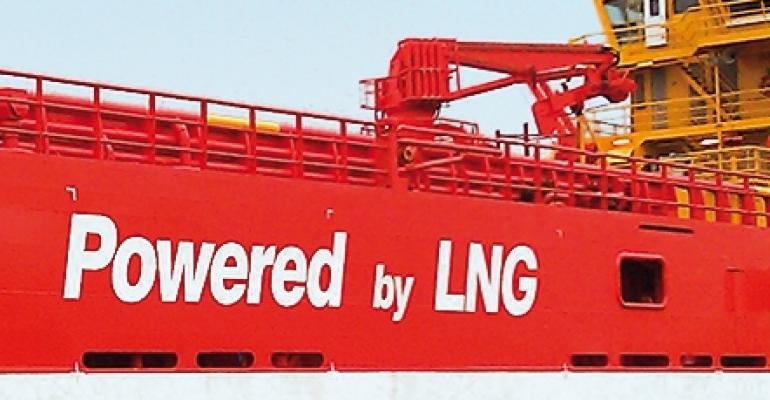The agreement covers potential newbuilding projects including LNG bunker vessels, small-scale LNG carriers and FSRUs, as well as LNG related assets employing battery and hybrid technologies.
As the first delivery in the agreement, DNV GL will issue Approval in Principle (AiP) certificates for two LNG bunker vessel designs from KMDTech, namely a 7,500-cu m small-scale LNG carrier with bunkering capabilities and a 7,500-cu m small-scale LNG carrier with bunkering capabilities and hybrid battery propulsion.
Both the LNG carriers will feature engines that can run on both diesel and LNG, and they will also have a class notation for bunkering which enables the provision of LNG bunkering services if required.
“One of the objectives of our collaboration with Keppel is to facilitate the increased supply of LNG bunkering infrastructure by being future ready through design approvals of different sizes of LNG bunker vessels, and LNG-related assets such as small-scale LNG carriers and FSRU,” said Johan Peter Tutturen, business director gas carriers in DNV GL.
The parties also plan to establish round table discussions involving all stakeholders in the LNG-as-fuel value chain, including gas and LNG bunker suppliers, designers, shipbuilders, shipowners and operators, in an effort to increase the uptake in demand for LNG bunkering in Singapore and beyond.
Read more: Keppel spearheads development of the first autonomous vessel in Singapore
In light of the upcoming IMO 2020 global sulphur cap regulation, LNG as marine fuel is viewed one of the options for deep-sea shipping.
DNV GL’s Maritime Forecast to 2050, part of the research behind the DNV GL Energy Transition Outlook 2018, projects that more than 10% of the world’s shipping fleet will be powered by LNG by 2030, compared to less than 0.3% in 2019. The report anticipates that LNG-powered vessels will make up 23% of the world’s fleet by 2050.
Copyright © 2024. All rights reserved. Seatrade, a trading name of Informa Markets (UK) Limited. Add Seatrade Maritime News to your Google News feed.


